4 routes of architectural tourism in Cali

If you are naturally observant and enjoy admiring human achievements in the layout of our modern urban centers, we present this list of buildings that not only attracted attention in the history of construction in Valle del Cauca, but also are (or were) the setting for important activities and anecdotes about our capital.
From Spiwak Hotels, we take this opportunity to congratulate engineers on their day (August 17), and invite you to take a moment to appreciate these structures that beautify our Santiago de Cali. Click on the highlighted options to navigate the indicated routes and choose what you want to explore in Cali.
(North and Central Zones)
Despite its history as one of the largest industrial centers in the country, technically our city is not known for having very tall buildings... The predominance of clayey soils and the coincidence of tectonic plates beneath its surface have instead promoted the horizontal expansion of the city rather than upwards: a characteristic that associates it with one of its most well-known epithets, both for the friendliness of its people and for the way its profile touches the sky on the horizon.
Nevertheless, our department's capital is not without tall buildings such as the Torre de Cali, the tallest in the city (with 46 floors, and a protagonist of some misadventures due to the urban legends attributing certain hauntings to it); or others with seismic resistance standards like the Corficolombiana Tower or the World Trade Center, the latter just a few meters from our Spiwak Chipichape Hotel (inspired by the Solomon R. Guggenheim Museum in New York).
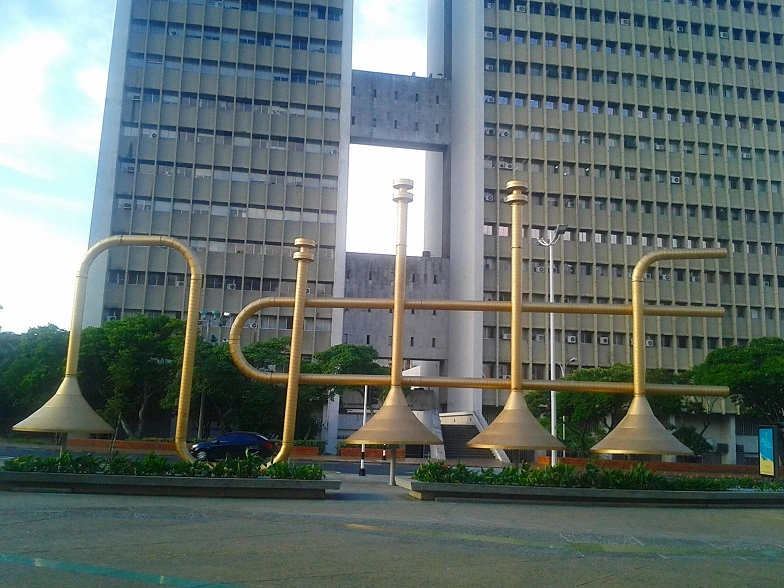
Centro Administrativo Municipal de Cali
In the old town area, the Centro Administrativo Municipal – CAM(Avenida 2N #10-70), located in front of the Plazoleta Jairo Varela: which is not only notable for the sculpture honoring the famous Grupo Niche that faces it with its trumpet-like shape, but also as a reference for modern architecture with its brise soleil elements in the windows to cool the interior of its offices, which belong to the City Hall of Cali.
Not far away is the headquarters of the Governorship of Valle del Cauca(Carrera 6 between Calle 9 and Calle 10), which, despite its controversial origin on the site of the demolished Palacio de San Francisco (which was part of the beautiful San Francisco Religious Complex of mixed neoclassical and Mudéjar style), is another representative construction of the avant-garde that the city began to adopt in the 1960s.
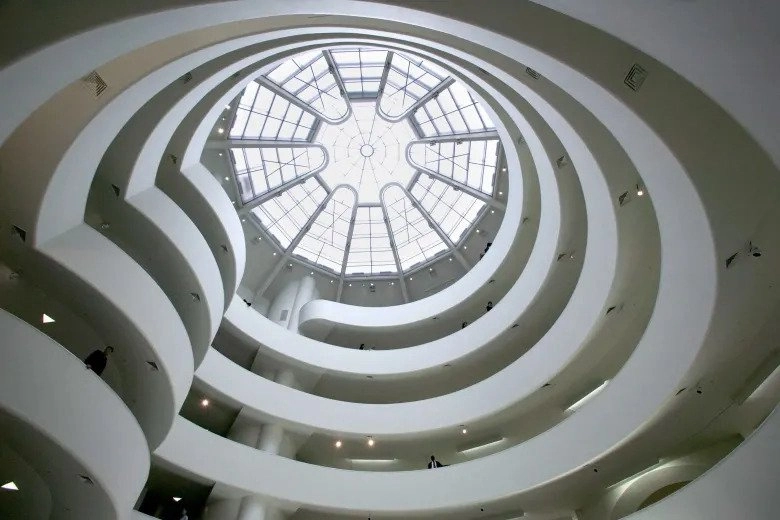
Museo Guggenheim de Nueva York
Behind it, the beautiful San Luis Building(Calle 9 No. 8-60): where the Assembly of Valle del Cauca currently meets and which originated as a school run by the Marist Brothers in 1925; today a site of tribute to the 14 people who perished in the attack on its facilities on April 11, 2002.
In front of the famous Plaza de Cayzedo, once the meeting point and main square of the city (under renovation), are the Palacio Nacional(Carrera 4 y 5 #12 – 04) and theEdificio Otero(Carrera 5, esquina Calle 12), both declared national monuments for their distinctive neoclassical and republican facades, respectively.
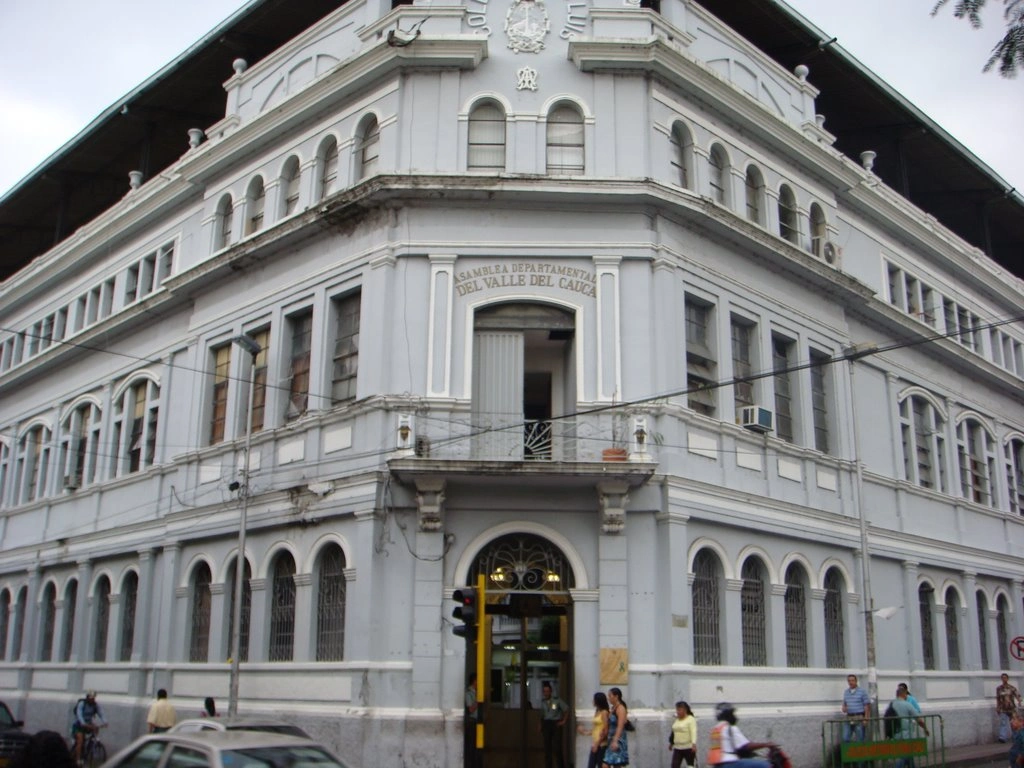
Edificio San Luis, sede de la Asamblea Departamental del Valle del Cauca
The first of these buildings is used for judicial purposes, while the second was intended for banking offices following an admirable private initiative to preserve the heritage. This is in memory of what was once this beautiful structure, which is said to have hosted the 20th Century-Fox star, Tyrone Power, in 1939 (sadly, in his diary, the actor claims that upon arriving in Cali he was not allowed to disembark from the plane amidst flowers and affection received, but he might have stayed in one of his other goodwill flights as a pilot in Latin America).
Aside from the celebrity scene, something you must see in Cali a bit further towards the Bulevar del Río is the Coltabaco building(Calle 12 #1-12):currently under restoration and considered an architectural gem for its pronounced Sevillian style, chandeliers, and Moorish arches. Opened in 1936 as the establishment of the largest tobacco industry in the country, it will now be the new headquarters of the Instituto Popular de Cultura, where its educational programs in art, music, and dance will be taught.
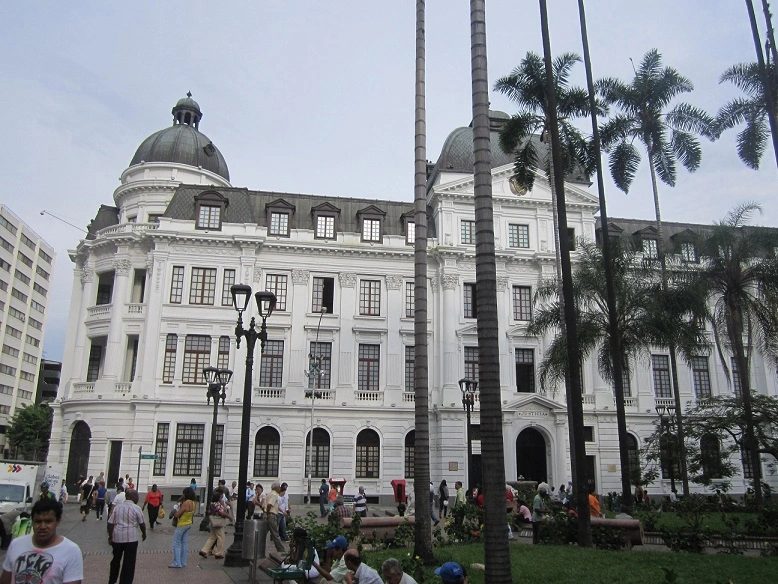
Palacio Nacional frente a la Plaza de Cayzedo
(Central area)
The capital of Valle del Cauca is traversed by seven (7) rivers, which are, besides the Cali River: the Cauca, the Pance, the Cañaveralejo, the Lili, the Meléndez, and the Aguacatal.
For this reason, our metropolis has an extensive catalog of 682 bridges, of which 388 are pedestrian, 272 are vehicular, and 16 are mixed. Some are very recent, such as the six (6) bridges of the extension of Avenida Ciudad de Cali project, and others are of great significance, such as the system that composes the Boulevard of Avenida Colombia, an important achievement in Cali's engineering.
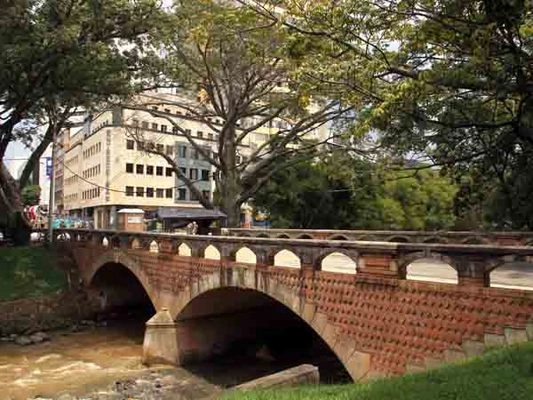
Puente de la Cervecería
In this regard, the Cali River stretches along its banks a generous number of pedestrian bridges that, some much more than others and from various stylistic schools, are worth contemplating for their beauty, cleanliness, and relative safety, such as the Ortiz, the España, the Bulevar del Río, the Cervecería, the Peñón, and the La Tertulia.
Others perhaps less attractive, like the La Estaca, the La Quinta, or the Alfonzo López are part of the inventory. A bit further north, the El Piloto and Escalonado El Piloto, despite their nice design, we decided not to visit due to their location in somewhat risky areas.
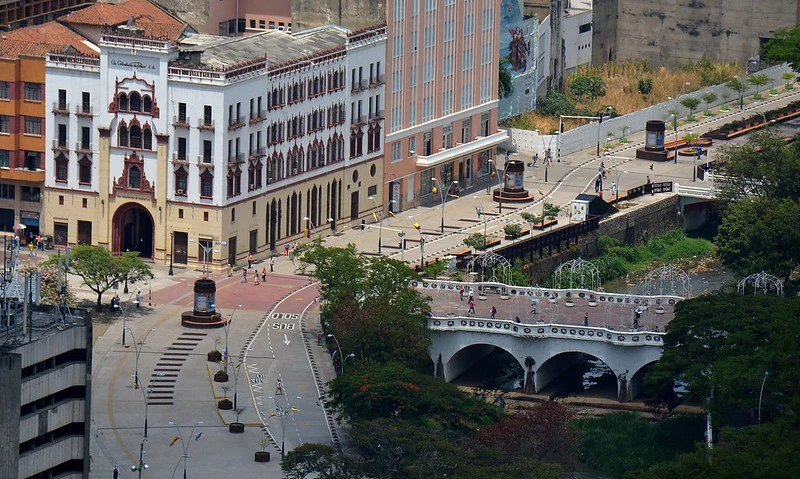
Bulevar del Río with the Puente Ortiz
(Central and Southern Area)
Having the opportunity to view houses that were once prominent in Cali is a privilege not everyone can have, and only a passerby with prior knowledge and keen senses can identify while wandering around the city.
Although many of our magnificent old mansions no longer exist, today some still endure, preserving the original style of the era in which they were built. Their facades and other structural and ornamental elements reflect what their surroundings and our society were like during the different decades of our city’s growth.
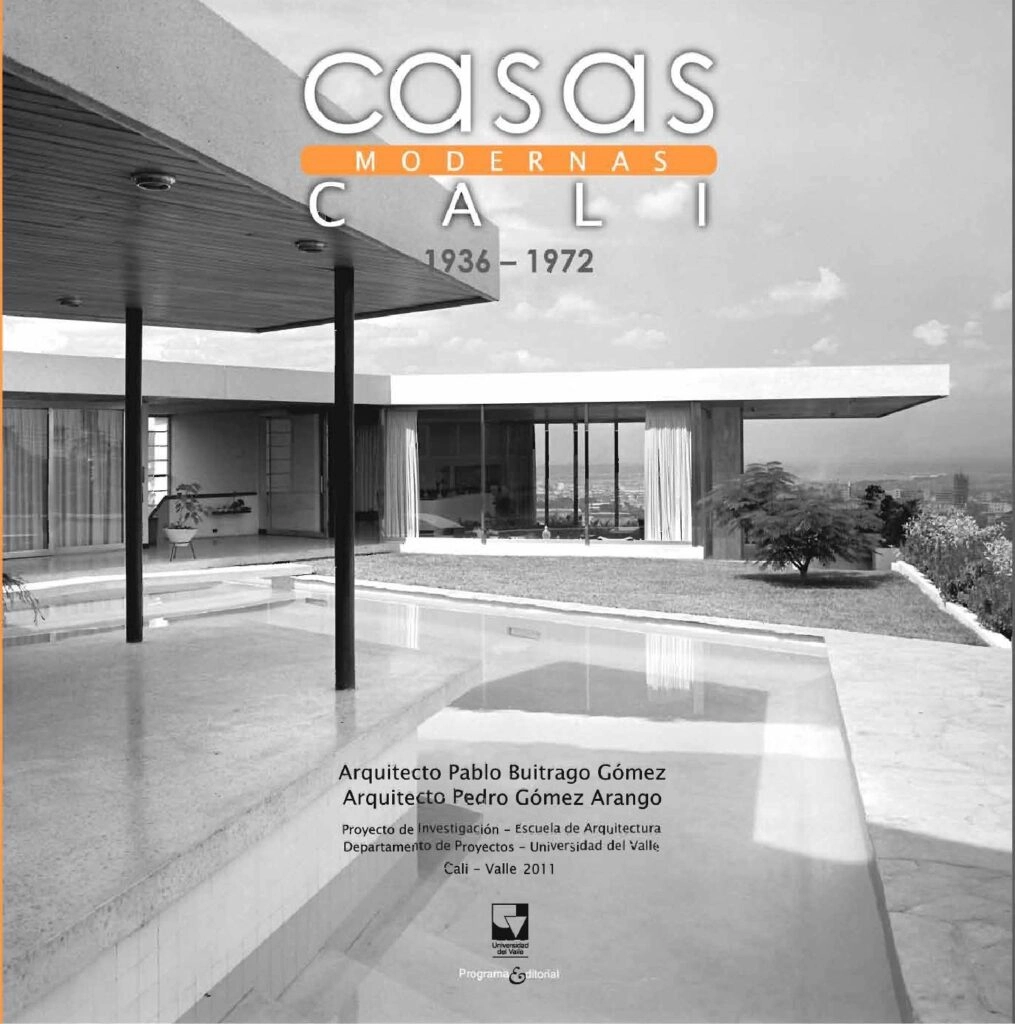
Modern Houses of Cali
Although general access is not permitted, here in the Heavenly Branch, we want to point out those beautiful residences that have been declared part of the Caleño architectural heritage and are still standing, much like street tours of celebrity mansions.
We start with the Casa Feldsberg (5 Oeste2 Cra. 2a), very close to the Monumento a Sebastián de Belalcázar in the Arboleda area…
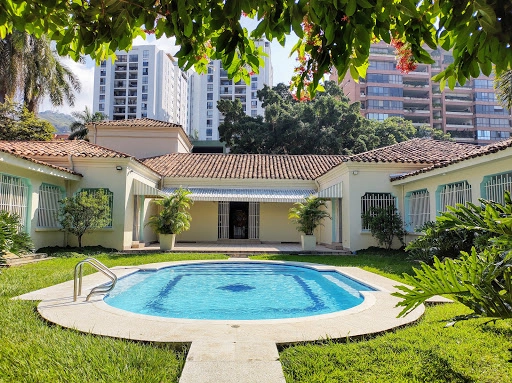
Casa Obeso Mejía
Its front with a marked avant-garde character, faithful to the design trends between 1950 and 1960, is still preserved with beautiful gardening typical of one of the city’s most privileged neighborhoods.
It was the home of the founder of Colombia’s largest sauce company, Mr. Leo Feldsberg, an Austrian immigrant who created our very Colombian brand Fruco.
Relatively nearby but on the opposite bank is the Casa Obeso Mejía (Avenida 4 Oeste No. 4-59):
An emblematic mansion donated by the couple Antonio Obeso and Luz Mejía, which today houses the Museo La Tertulia, a highly recommended space for art and education open to the public.
An emblematic mansion donated by the couple Antonio Obeso and Luz Mejía, which today houses the Museo La Tertulia as a highly recommended space for art and education open to the public.
Further away, the Casa Domínguez (Calle 4b #27), built in 1937 and then described as “the ugliest in Cali” by the less discerning…
It was simply ahead of its time: set apart on a hill in the San Fernando neighborhood and inspired by the work of geniuses like Frank Lloyd Wright and Mies Van Der Rohe. It represented a break from the traditional design standards prevalent in the region, which were more classical or colonial.
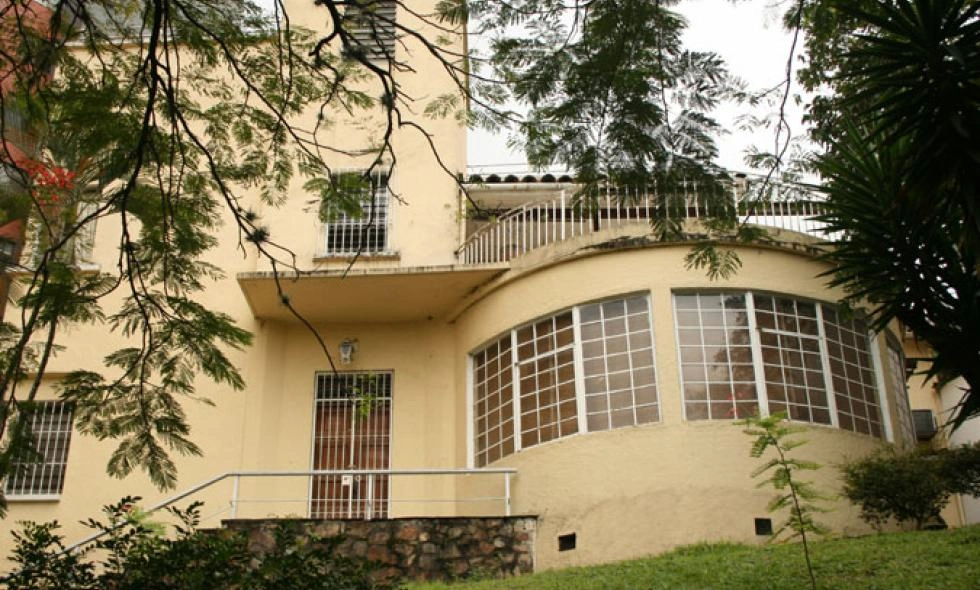
Casa Domínguez
Next, we find the Hacienda El Limonar(Carrera 66 Calle 13B #13-11), a huge and very beautiful Californian-style house from 1948, with spacious gardens where many locals get married.
It preserves and displays precious objects from the 15th, 19th, and 20th centuries, and thus is part of the Valle del Cauca museum corridor. It can be visited by contacting their account on Instagram.
We cannot fail to mention the Casa Lago Verde(Calle 16A N° 122 – 70), an impressive residence with a water mirror that is part of the municipal ecological system: one of the best maintained and home to dozens of endemic flora and fauna species among the 78 wetlands that make up our urban grid.
Protected by large trees and dense foliage, it belongs to the Velásquez family, custodians of this green lung in the south of our city.
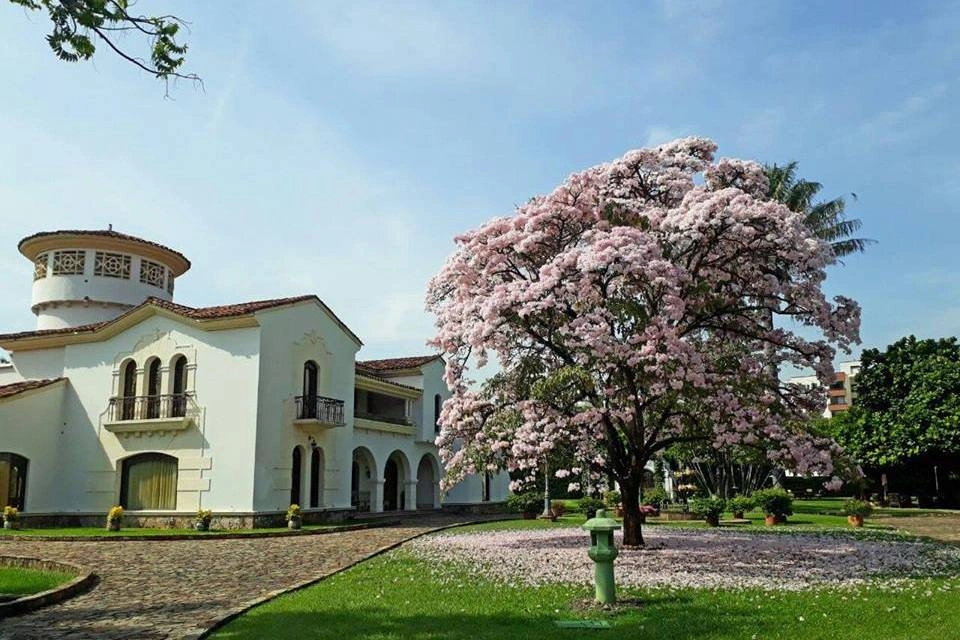
Hacienda El Limonar
(Central and Southern Zones)
In this category, several buildings deserve admiration for their beautiful lines or innovations in their construction at the time.
The theatersJorge Isaacs (Carrera 3 #12-28) and Enrique Buenaventura(Carrera 5 #6-64), named in honor of the most sublime writer and the most excellent playwright respectively from our region, are at the top of this list due to their status as national monuments, both with styles inspired by Italian romanticism and classicism.
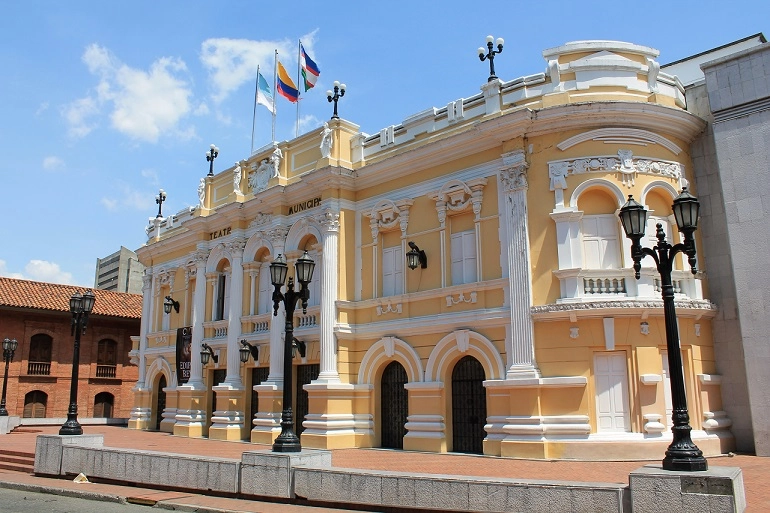
Teatro Municipal Enrique Buenaventura
Very close to the latter, the Cultural Center of Cali(Carrera 5 #6-05), a city block with Mudéjar and medieval inspiration that houses the historical archive of our metropolis, and also serves as a venue for exhibitions and artistic gatherings held throughout the year.
Walking a bit further towards El Peñón (past the Biblioteca Centenario in what was the house that now hosts it after several relocations), is the iconic Museo La Tertulia(Avenida Colombia No. 5-105 Oeste), with its elegant double façade by architect Manolo Lago that evokes the controversial Palazzo della Civiltà Italiana in Rome.
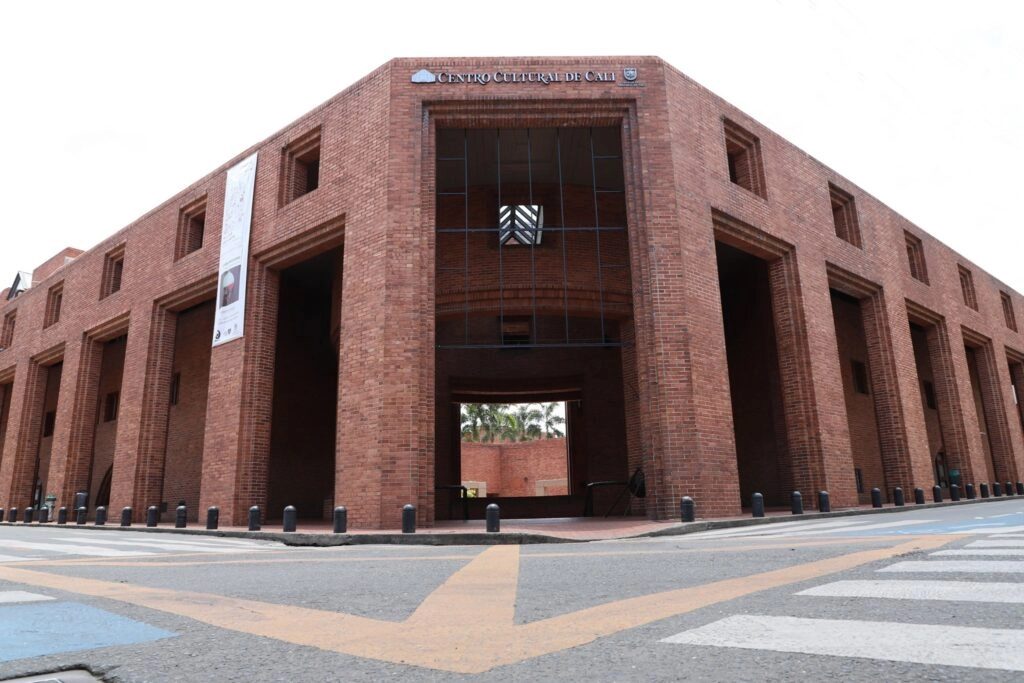
Centro Cultural de Cali
Further south, the Jorge Garcés Borrero Departmental Library: a robust and sober 15,000 square meter building that even includes an astronomical observatory and is part of what is known as the “Knowledge Block” in the development of Cali's urbanism.
Finally, in its designation as “American Capital of Sports”, we must not overlook those great works that have earned Cali this honorable title thanks to the talent of local engineering.
The Olympic Stadium Pascual Guerrero (built in 1936 on the land that this poet donated to the city and progressively remodeled) has been the stage for the most epic national and international soccer games... And next to it, the Evangelista Mora Coliseum: with its hangar-like shape and built to host some of the activities of the 1954 National Games, it is now home to volleyball, table tennis, and futsal, among other sports in the city. Both venues are part of a larger infrastructure known as the San Fernando Sports Complex (located between Carreras 34 and 36, Calles 5A and 5B4).
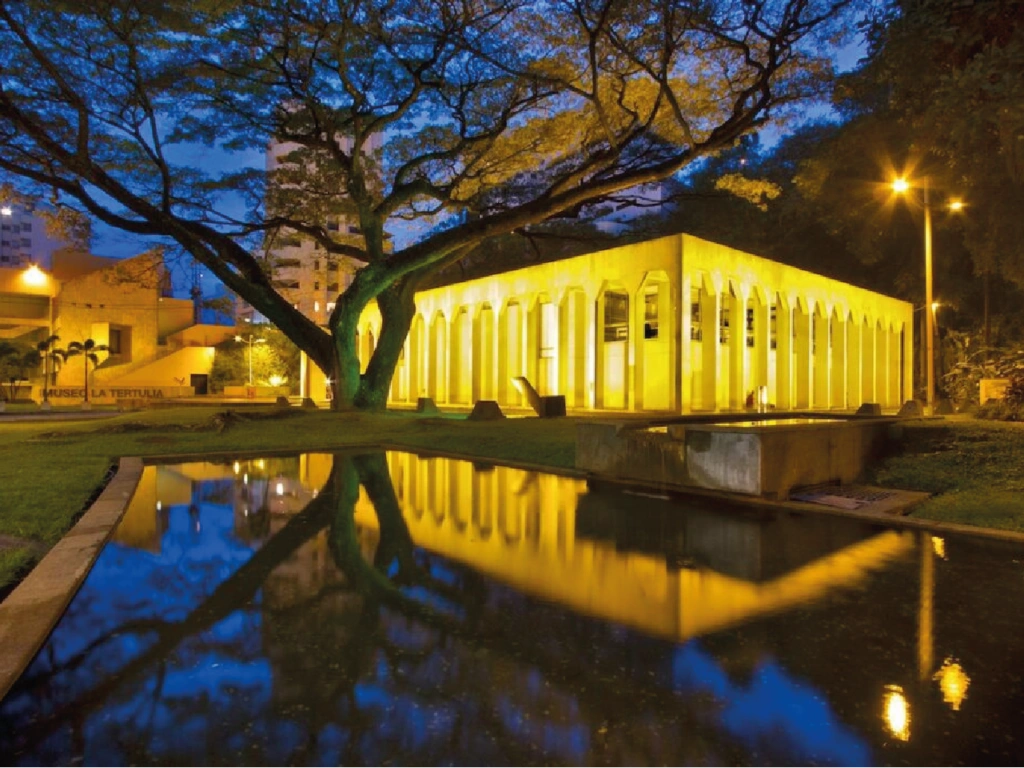
Museo La Tertulia
Four blocks away, you reach the Jaime Aparicio Sports Complex (between Carreras 32 and 39, Calle 9, and the Sur Highway), popularly known as the “Panamerican Courts”, a mega sports complex that includes swimming pools, an athletics track, baseball, softball, tennis, hockey, basketball, tejo fields; and sports coliseums for dance, volleyball, and karate, a pride of the architecture of Cali and a reference of the cholado culture in our Valle del Cauca capital.
And finally, the futuristic Pueblo Coliseum, designed by Pedro Richardson and Libia Yusti, distinguished architects of several public works in Cali. This formidable basketball temple is located within a larger facility known as the “Alberto Galindo Sports Complex” (between Carreras 52 and 55, and Calles 2 and 3) which also includes the impressive Alcides Patiño Velodrome and other sports facilities for BMX, skating, bowling, billiards, and climbing.
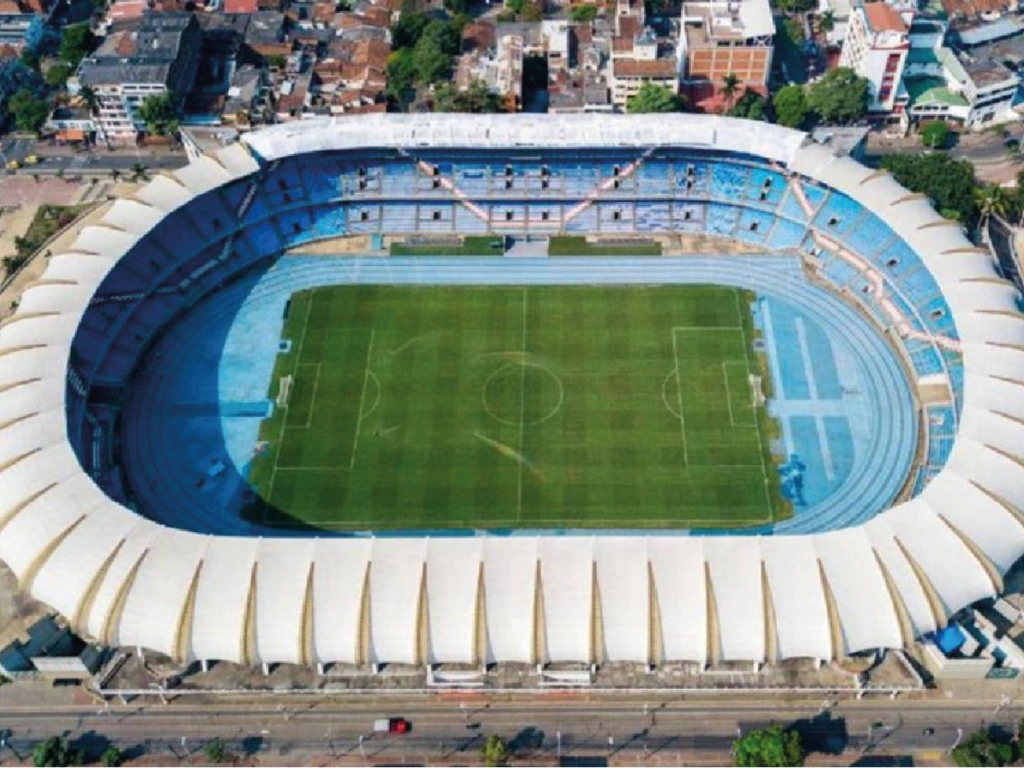
Estadio Olímpico Pascual Guerrero
Without further ado, we hope this guide helps illustrate the most superb examples of architectural and urban design in our splendid Cali. Enjoy!
Spiwak Hotels: your most complete accommodation option, ideal for tourist plans in Cali. Located in the Chipichape Shopping Center, in the Zona Rosa of our city, 5 minutes from the Granada gastronomic district and with easy access to the city center. 493 suites, parking, and 12 event rooms for social and business events. We are the largest hotel complex in Valle del Cauca!
Los post recientes
Family and Couples

Romantic Plans in Cali to Celebrate Valentine's Day
Celebrating Valentine's Day in Cali is an experience like no other—our city is simply perfect for it.
Whether it's February 14 or any other date, …
Family and Couples

Where to Spend Valentine's Day in Cali?
Are you on the hunt for inspiration on where to spend Valentine's Day in Cali?? If you haven't quite nailed down your plans for …
Continue reading





